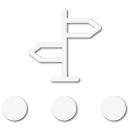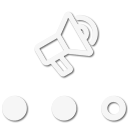
Member III
I have been to SERE twice and taken multiple SABC courses. I feel that, relative to most everyday folks and even weekend adventurers, I have an above average capacity to handle a medical emergency; I can emplace a nasopharyngeal tube, make a tourniquet, and perform CPR.
That said, I think most FAKs are tremendously overcomplicated. Other than a basic few comfort items like ibuprofen, claratin, and hydrocortisone, my FAK consists of three main components:
1) Gauze
2) Duct tape
3) Neosporin
With these three items, I--or most anyone, for that matter--can pretty easily control almost any bleeding, or splint a limb, all while avoiding infection. These are certainly not tools for permanent or even semi-permanent treatments, but they will keep someone alive and reasonably safe from any injury I'd have any business personally treating in the field.
I keep soap and towels in my vehicle as well. Oh, and I sometimes carry super glue, but mine needs replacing. It can be a simple, effective treatment for a bad cut on a finger.
That said, I think most FAKs are tremendously overcomplicated. Other than a basic few comfort items like ibuprofen, claratin, and hydrocortisone, my FAK consists of three main components:
1) Gauze
2) Duct tape
3) Neosporin
With these three items, I--or most anyone, for that matter--can pretty easily control almost any bleeding, or splint a limb, all while avoiding infection. These are certainly not tools for permanent or even semi-permanent treatments, but they will keep someone alive and reasonably safe from any injury I'd have any business personally treating in the field.
I keep soap and towels in my vehicle as well. Oh, and I sometimes carry super glue, but mine needs replacing. It can be a simple, effective treatment for a bad cut on a finger.
Last edited:








